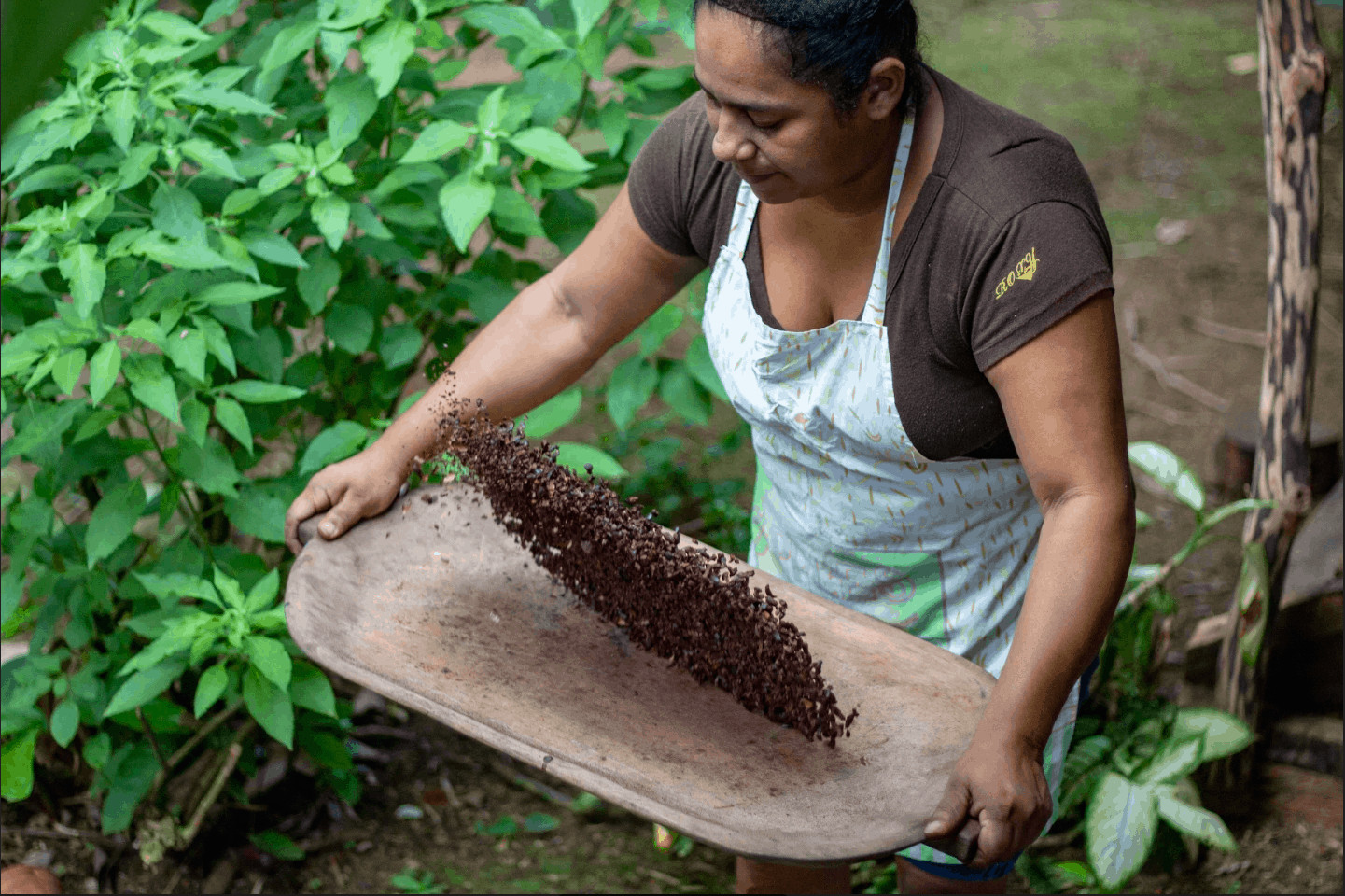The Coopedota coffee cooperative is doing well, but despite the smell of fresh grounds in the air, residents of Santa María de Dota know business is topping out. Little space is left to farm here in the mountains south of San José, and though residents don’t plan to give up the coffee production that has long been the lifeblood of their community, they are starting to look for opportunities beyond the bean.
Tourism and catering are two of the most attractive possibilities for new business in this rural town in the lush green mountains of the Los Santos area. Carving out a new niche in this predominantly agricultural region is getting easier thanks to Peace Corps volunteers, community members told U.S. Ambassador Mark Langdale during a recent press tour.
With the help of the volunteers, fledgling business plans “passed from words to deeds,” said Wilberth Gamboa, a member of a tourism committee in Santa Cruz, a small town in Los Santos, 70 kilometers southeast of San José’s Juan Santamaría International Airport.
The Coopedota cooperative has grown over the course of four decades, but as it reaches its peak, some members of the coffee community are looking to branch out. Working together since 1960, members of the cooperative have been able to purchase and maintain a $9 million factory, said Roberto Mata, general manager of the cooperative.
The factory has the equipment to roast, sort and package the coffee grown by its members. Brands produced in the factory include Dota Tarrazú, Dota Fresh, Hermosa and Quetzal. The 750 small producers who make up the Coopedota cooperative sell an estimated total of 65,000 100-pound sacks of coffee each year,Mata said.
Coopedota earns about ¢10 billion ($19.6 million) yearly from coffee sales and business ventures such as a cafeteria and a hardware store. Producers, generally families of four to five people, usually make a 30% profit on their coffee, Mata said. However, Dota’s coffee business is unlikely to grow significantly, Mata explained, because most of the available land is already being farmed and the dense forest surrounding the farms is part of a legally protected reserve.
U.S. citizen Tracy Rosecrans is one of two Peace Corps volunteers working in this rural area located below the Cerro de la Muerte peak. Rosecrans has five different projects aimed at encouraging small businesses in Santa María de Dota, and Zoey Chanin is doing similar work in nearby San Marcos de Tarrazú.
Rosecrans came to town as part of the Peace Corps’ micro-business development program. Several groups were thinking about less caffeinated job opportunities before she arrived but were having trouble putting their plans into action. Carlos Gamboa, a member of the Santa Cruz tourism committee, said before Rosecrans began helping his group develop a homestay program, he was a bit discouraged. He said he wasn’t familiar with using computers, and sitting down to work with one felt like facing a monster.
“We had everything mixed up,” said Carlos, Wilberth’s brother. Rosecrans “helped us to get organized; she helped us to get motivated.” Rosecrans, who has a bachelor’s degree in business administration from the University of California at San Diego, tutored group members in English and helped them create a Web site.
Fewer than nine months after Rosecrans arrived in Santa María de Dota, Santa Cruz residents are seeing some of the tourists they were hoping for. A group of 45 students with the U.S. International Student Exchange program came to the small coffee-producing town in March, and another 33 students came to town last month, Wilberth said.
Cecilia Ureña is another Dota resident who hopes to take her business to the next level with technical skills she learned from Rosecrans. Ureña earns her living by renting out a cabin to tourists who come to Santa María Dota. During the summer, she has plenty of guests who pass through on bicycle tours and horseback riding trips, but in the rainy season, things are slow, she said.
– Ureña hopes to attract more visitors and maybe even Spanish students. “I am going to gain a lot with this page, because everything is on the Internet,” she said.
U.S. Ambassador Langdale says the successful partnership between Peace Corps volunteers and residents of this small coffee region is a bright spot on the big picture. On a macro level, the United States hopes to encourage development in Latin America through democracy and international business.
“This is a great example of how that really works,” he said. “It makes me want to just go back and keep doing what we’re doing.”






